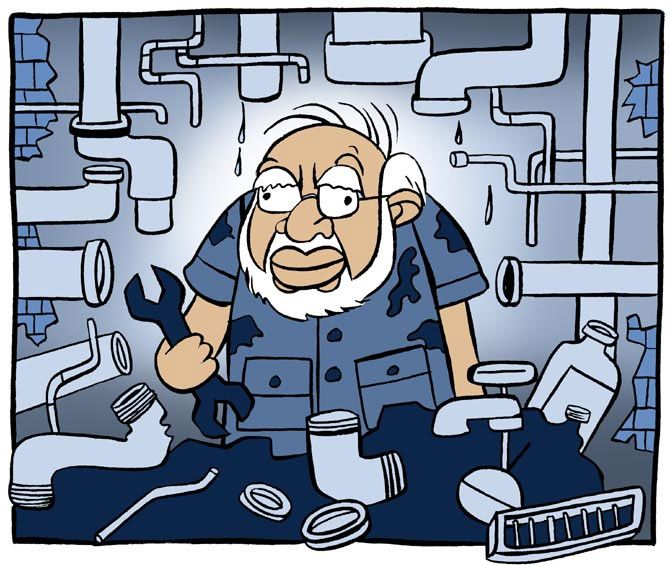While they have restructured loans, there is still question mark over the success of such a work-out

The Union Cabinet might within the next few weeks consider a new framework to deal with toxic assets worth Rs 6 lakh crore in the Indian banking system, a top government official said.
The proposed framework envisages legislative action through amendments to the Prevention of Corruption Act (PCA) and Banking Regulations Act to empower the banks further to tackle non-performing assets (NPAs), especially the top 35-40 NPAs in value terms, which constitute 60% of all toxic assets.
The presumption is that the other systems in place in banks and the Reserve Bank of India (RBI) have enough teeth to deal with bad assets.
Officials said that the planned PCA amendments would allow banks to take commercially viable decisions, which are later not scrutinised by probing agencies. These will, by all accounts, cleared by Parliament in the monsoon session, Business Standard has learnt.
The framework envisages setting up multiple oversight committees (OCs) under the aegis of the Reserve Bank of India to monitor progress of NPAs on a case-to-case basis. The OCs could get an enhanced mandate to help the lenders with their decision-making, including overseeing joint lenders forums (JLFs), which are consortia of bankers dealing with projects.
“In terms of conceptualisation, everything is in place. The banks know what to do, and so do the RBI and government. It is now a matter of getting cleared by the cabinet and setting this in motion,” said a senior government official aware of the developments.
Union Finance Minister Arun Jaitley will be in Washington this week for the annual spring meeting of the World Bank-International Monetary Fund, after which he is scheduled to fly to Moscow. The Cabinet might take up the matter once he is back in New Delhi.
As reported earlier, the framework will also enable a JLF to deal with NPAs more effectively by possibly tweaking the current guidelines and reducing the level of (NPA) exposure as well as the number of banks in a JLF for taking a decision on toxic assets.
According to current rules, decisions regarding a bad loan or toxic assets are binding on all lenders in a JLF if they are approved by 75% in terms of exposure or 60% in terms of absolute numbers.
However, these thresholds are seen as too high and hence there could be a change in regulations to enable JLFs to decide on NPAs based on a simple majority.
Banks that are part of a consortium face problems owing to disagreements among them on projects that have gone bad.
To address that, the Centre is expected to bring in an enabling provision under which once a simple majority of the banks, based on their exposure to the bad loan, takes a decision, it will be binding on other banks that are part of the group. The new exposure level to be set is likely to be lower than the current 75 per cent.
Banks have sought changes in existing debt recast norms such as spreading the provisioning for large accounts for eight quarters and not seeking personal guarantees from existing promoters.
The banks say guarantees should be sought only when there is a management change or a new promoter takes over a debt-ridden company.
This has become necessary because many promoters have refused to give their personal guarantees on loan restructuring on grounds of supposed changes in policies and cancellations of mines/spectrum by courts for their NPAs.
Illustration: Uttam Ghosh/Rediff.com







 © 2025
© 2025